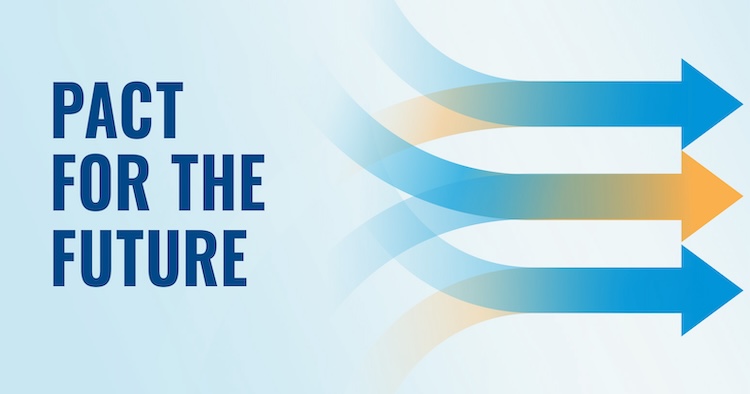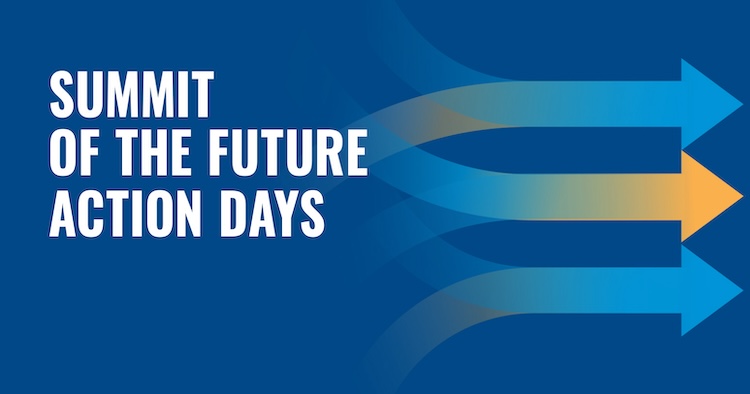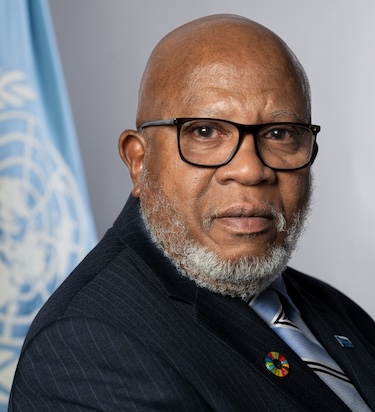By Thalif Deen
UNITED NATIONS | 19 September 2024 (IDN) — As the UN plays host to four high-level summit meetings next week—with possibly over 150 world leaders in attendance—a group of over 160 civil society organizations (CSOs) is calling on the United Nations to make global governance more “inclusive and accountable.”
The UN needs to “open its doors” to citizens, elected representatives and civil society, said Andreas Bummel, the Executive Director of Democracy Without Borders, one of the document’s co-signatories. https://www.wethepeoples.org/openletter/
The demand for a political role for CSOs is also accentuated by a traditional rule during summit meetings when CSOs are barred from entering the UN building.

The UN Summit on 22-23 September is expected to adopt a “Pact for the Future” which will include commitments to strengthen the UN’s “partnerships” with “relevant stakeholders”, among other things.
However, according to the open letter, the draft of the final outcome document, to be adopted at the summit, is seen thus far as “not going beyond general statements in this field”.
The civil society letter advocates four proposals aimed at enhancing public participation at the UN: the creation of a UN Parliamentary Assembly; a World Citizens’ Initiative; a Global Citizens’ Assembly; and a UN Civil Society Envoy. According to Democracy Without Borders, these new bodies and mechanisms could be set up by the UN General Assembly.
“These proposals have the potential to truly help transform global governance, a goal the Summit of the Future is supposed to serve according to the UN’s own statements”, said Bummel.
As the open letter points out, each of these proposals already enjoys “considerable support from a broad range of stakeholders”.
The other high level summit meetings scheduled for next week will focus on the UN’s Sustainable Development Goals (September 24), sea-level rise (September 25) and antimicrobial resistance (September 26).
According to the CSO proposals, a UN Parliamentary Assembly would comprise members from national parliaments or directly elected representatives, enabling them to participate in UN activities and serve as a diverse, representative oversight body.
The procedure of World Citizens’ Initiative would empower people worldwide to propose items for the UN General Assembly’s agenda, provided they gather a sufficient number of global signatures.
A Global Citizens’ Assembly would allow ordinary citizens, who are selected through a civic lottery to reflect the diversity of the world’s population, to deliberate and make recommendations on significant global issues.
A UN Civil Society Envoy is proposed to enhance participation, foster inclusive gatherings, and extend the UN’s engagement with civil society, major stakeholders, and the general public.

Meanwhile, the global humanitarian organization Oxfam says it is focusing on UN Security Council Reform, gender, digital rights, inequality, climate action, and humanitarian issues while urging global leaders to take bold decisions and action as they deliberate the pressing issues of our time.
Oxfam International Executive Director Amitabh Behar said: “Our global systems have failed to address the unprecedented challenges we face today, leaving millions behind. Conflict is rampant, the climate crisis is at a breaking point, and inequality is soaring.”
“As we gather at this year’s Assembly, leaders cannot squander the opportunity to restore people’s faith in the UN’s role as the flag-bearer for global peace, security, and cooperation. They must move beyond mere rhetoric and make bold choices to create a system that serves all of humanity, not just the powerful few”, said Behar.
FOEI
According to Friends of the Earth International (FOEI), the world is facing an unprecedented convergence of crises—climate change, pandemics, natural disasters, genocides, wars, and soaring inequality.
“The international response, led by the United Nations and its multilateral system, has largely failed to deliver real solutions. Instead, global governance continues to be shaped by the interests of powerful corporations and a handful of wealthy nations, perpetuating a system that overlooks the needs of the majority, particularly in the Global South”.
This model of governance has only deepened inequality and exacerbated environmental degradation, offering no meaningful solutions to the escalating global crises, said FOEI.
“The upcoming Summit of the Future risks becoming yet another exercise in maintaining the status quo. What the world truly needs is a democratic global government—one that is inclusive, accountable, and capable of addressing the urgent challenges we face,” said Gonzalo Berrón from the Transnational Institute (TNI).
Voices from the Global South continue to be sidelined and marginalized in global decision-making. Frustration is growing in this region over the dominance of developed countries and transnational corporations in shaping international policies.
“The failures evident in our global governance have no doubt fueled the rise of far right and fascist movements worldwide, capitalizing on the disillusionment of populations left behind by the current system of global governance”, said FOEI.
“The Summit of the Future is unlikely to deliver the transformative changes the world needs. Instead of addressing the root causes of today’s crises, it appears poised to offer vague commitments that reinforce the existing neoliberal system,” said Martín Drago of Friends of the Earth International.
“What we need is a new global governance structure—one that is democratic, accountable, and responsive to the needs of all people, not just the privileged few.”

President of the 78th Session of the United Nations General Assembly. Credit: UN
At a September 9 press conference, the outgoing President of the General Assembly Dennis Francis said “I’m optimistic about the future of the UN for a number of reasons. Because there is no other organization on this planet like the UN that has the capacity or the commitment to do what the UN does. It simply does not exist anywhere else.”
And as much and as important as regional organizations are and can play an important role, they can never supplant the role played by the UN.
For one very simple fact, the convening power of the UN to bring together 193 countries, diverse countries, as it should be, reflecting the sociological, political, religious, ethnic, cultural, technological, environmental diversity that exists across the earth so that countries can discuss their problems and concerns together in a rational, civil manner and to find solutions, he pointed out.
“No one left behind must mean no one excluded from the discussion. And that is what the UN does, phenomenally so. We may not always win in the way we want to win, but the values and principles that the UN abides by, that of resolution of disputes by peaceful means through negotiation and conciliation means and allows everyone to come here and express their views freely and openly on the important issues of our times.”
“And so, I remain bullish—to use a term used in the financial markets—I’m bullish on the UN. It is challenged, there’s no doubt about it, but we live in challenging times”.
And so, the challenge that exists is not just for the UN. There are many organizations that are challenged.
“However, we have the will, and we have the capacity and the determination to look ahead and to do what is necessary in terms of reform in order to deliver the commitments we have and the mandate that the charter gives us for we the peoples” Francis declared. [IDN-InDepthNews]
Key Links on the Summits
The Summit of the Future website and Programme
The Summit of the Future Media Corner
Summit of the Future Action Days
The Sustainable Development Goals
General Assembly High-level Week 2024 | United Nations
Image credit: United Nations.


